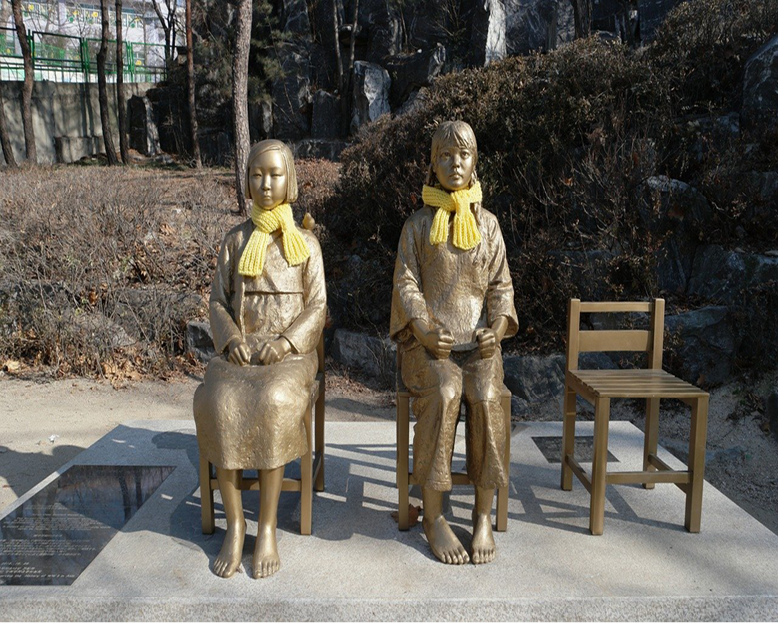South Korean “comfort women” had their first hearing in Seoul Central District court on Nov. 13
in a lawsuit filed three years ago against the Japanese government. As victims of Japanese sexual
exploitation during World War II when Korea was subject to oppressive colonial rule, “comfort
women”—along with other female activists—have been collectively voicing their struggles and
dissatisfaction to demand adequate compensation. Though this lawsuit still awaits a response
from the Japanese government, it is both a legal and symbolic leap forward for justice long
overdue.
“The controversy of “comfort women” has been going on for a long time because victims and the
Japanese government have incompatible views on what true compensation is,” said Jasmine
Jeong (9), MUN member. “Japan believes that it has already settled the issue under the 1965
treaty when it provided millions of dollars in aid and loans to the Korean government as wartime
reparations. However, Korean “comfort women” believe that they have not received a sincere
apology and direct individual compensation. I personally believe that money alone cannot
account for the sufferings that these victims endured, and that Japan has to show more genuine
remorse for what it has done by responding to this hearing at court.”
The lawsuit was originally filed in December 2016 by surviving victims, one year after the 2015
agreement between South Korea and Japan when Japan offered one billion yen (8.3 million
USD) to the South Korean government. With the intent of getting Japan to officially
acknowledge its wrongdoings, the victims demanded a financial compensation of $171,000
individually. According to Arirang News, the Japanese Foreign ministry rejected the legal
proceedings and documents three times and refused to take part in the trial under the justification
of “sovereign immunity.” Sovereign immunity protects a sovereign country from being legally
sued in courts of other states without its consent. In response, the South Korean court adopted a
different approach of conveyance by public announcement: it declared that the legal documents
have been reached through announcements on its bulletin board and thus had the same effect as a
petition.
“I believe that the lawsuit is justified, especially because “comfort women” are filing to receive
an apology that they deserve,” said Megan Lee, MUN advisor. “This is more of a symbolic move
because there is a tendency for the current generation to dismiss these issues as merely history
that occurred 80 years ago. Sex crimes are prevalent in war history, from the Rohingya in
Myanmar to the Yazidi in Iraq, suggesting the need for more safeguards for civilians in times of
war. The lawsuit raises an important question on the role of the international community and at
what point it should step in to intervene in these conflicts.”
The lawsuit represents a victim-oriented approach in bringing justice to “comfort women”,
addressing the humanitarian facets of the issue and encouraging victims to fight for the
recognition of their plights and against the degradation of human dignity. Despite the
significance of the hearing in initiating court procedures, the legal issue is unlikely to be quickly
settled due to an increasing conflict between South Korea and Japan. This is because the South
Korean Supreme Court in October last year ordered Japanese companies to recompense South
Korean victims of wartime labor, which sparked historically rooted tension and strained political
relations.
“Japan and Korea are involved in one of the most intense disputes in their history,” said Shawn
Yoon (11), MUN member. “Tokyo removed Korea from its whitelist of countries that receive
trade benefits, and Korea responded by pulling out of the General Security of Military
Information Agreement and organizing boycotts. Though Japan does not explicitly agree, many
people including myself believe that its economic retaliation is due to the controversy of
“comfort women”. It is important that both countries overcome their economic rift and cooperate
to properly address justice for comfort women.”

